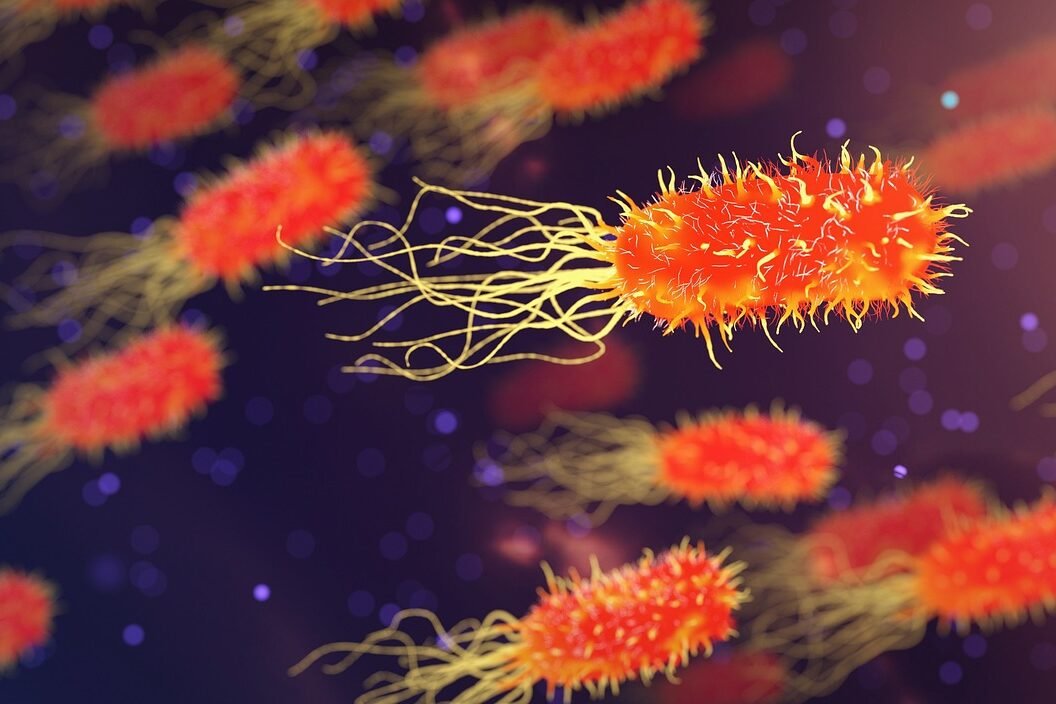Gut Microbiome Transplants Can Influence Behavior

Scientific studies have shown that transferring gut bacteria from one individual to another can lead to noticeable changes in behavior and personality. This process, known as fecal microbiota transplantation (FMT), has been widely studied for its effects on physical health, but emerging research suggests it can also impact mood, cognition, and emotional responses.
FMT works by introducing a new microbial ecosystem into the gut, potentially altering neurotransmitter production and hormone regulation. In some cases, recipients have reported shifts in anxiety levels, social interactions, and overall temperament. While the long-term psychological effects are still being explored, these findings highlight the gut’s surprising role in shaping personality.
Anxiety and Depression Can Be Transferred Through Gut Bacteria
Research has demonstrated that gut bacteria play a role in emotional regulation, and transferring microbiota from anxious or depressed individuals can induce similar symptoms in recipients. Animal studies have shown that mice receiving gut bacteria from humans with depression exhibit signs of stress and social withdrawal, reinforcing the connection between gut health and mental well-being.
This phenomenon suggests that microbial composition directly affects brain function, possibly through the production of mood-regulating compounds like serotonin and GABA. Scientists are now investigating whether altering gut bacteria could serve as a treatment for mental health conditions, offering new hope for individuals struggling with mood disorders.
Extroversion and Introversion May Be Linked to Gut Bacteria
Personality traits like extroversion and introversion may be influenced by the composition of gut microbiota. Studies have found that people with diverse gut bacteria tend to be more social, while those with less microbial variety often exhibit introverted tendencies. This connection suggests that gut health might shape social behaviors in ways scientists are only beginning to understand.
Some researchers believe that certain gut bacteria promote the production of oxytocin, a hormone associated with trust and social bonding. If gut microbiota influence neurotransmitters that regulate sociability, it raises the possibility that personality traits could be modulated through dietary and probiotic interventions.
The Gut-Brain Axis May Hold the Key to Mood Swings

Frequent mood swings may be linked to gut microbiome imbalances, with changes in bacterial composition influencing emotional stability. Scientists have discovered that individuals with a disrupted gut microbiota often experience heightened emotional reactivity, suggesting that microbial health plays a crucial role in regulating mood.
Microbes in the gut produce neurotransmitters like dopamine and serotonin, which are essential for maintaining balanced emotions. When these microbial populations shift, individuals may notice sudden changes in mood, energy levels, and stress responses. Understanding this connection could open the door to gut-focused treatments for emotional instability.
Personality Shifts Have Been Reported After FMT Procedures
Patients undergoing fecal microbiota transplants for medical reasons have occasionally reported unexpected personality changes. Some have noticed reduced anxiety, increased confidence, or shifts in food preferences after receiving a new microbiome. While these reports are mostly anecdotal, they align with growing evidence that gut bacteria influence mental states.
Scientists speculate that the introduction of new bacterial strains may alter the gut-brain axis, modifying neurotransmitter activity and hormone levels. If further studies confirm these effects, FMT could become a potential avenue for addressing mood disorders and personality-related conditions through microbiome manipulation.
Gut Bacteria May Influence Risk-Taking Behavior
Scientists have found intriguing connections between gut microbiota and risk-taking tendencies. Some studies suggest that individuals with a diverse and balanced gut microbiome are more likely to engage in adventurous or high-risk activities, while those with an imbalanced microbiome tend to exhibit more cautious and risk-averse behaviors.
This may be due to the microbiome’s role in regulating dopamine, a neurotransmitter associated with reward-seeking and motivation. A lack of certain gut bacteria could lead to lower dopamine levels, reducing the drive for novelty and excitement. Understanding how gut microbes shape decision-making could have implications for treating anxiety-related disorders and enhancing mental resilience.
Diet and Probiotics Could Alter Personality Traits

If gut bacteria influence personality, then dietary changes might be able to modify certain traits over time. Studies have shown that consuming probiotics and fiber-rich foods can promote the growth of beneficial bacteria associated with emotional stability, social engagement, and cognitive function.
For example, fermented foods like yogurt and kimchi contain probiotics that support gut health and may contribute to reduced anxiety and improved mood. Some research suggests that people who regularly consume gut-friendly foods tend to experience lower stress levels and greater emotional balance. These findings hint at the possibility of using diet as a tool for shaping personality and mental well-being.
Childhood Microbiome Development May Affect Adult Personality
The foundation of an individual’s gut microbiome is established in early childhood, and researchers believe that these early microbial communities can have lasting effects on personality. Factors such as birth method, breastfeeding, antibiotic exposure, and diet in infancy all influence microbiome composition, potentially shaping long-term emotional and cognitive traits.
Children with a more diverse microbiome tend to display greater adaptability and emotional resilience. Conversely, disruptions in gut bacteria during early development have been linked to an increased risk of anxiety, depression, and even neurodevelopmental disorders later in life. These insights highlight the importance of nurturing a healthy gut microbiome from an early age to support lifelong mental and emotional well-being.
Gut Bacteria May Affect Empathy and Emotional Sensitivity
Recent research suggests that the microbiome might play a role in emotional sensitivity and empathy. Some bacterial strains appear to influence how people process emotions, respond to social cues, and interpret the feelings of others.
For instance, individuals with certain gut bacteria profiles may be more empathetic, while those with less microbial diversity may struggle with emotional regulation. This discovery raises fascinating questions about whether gut health could be linked to personality disorders or conditions affecting social cognition, such as autism spectrum disorders. While research is still in its early stages, the potential to influence empathy through gut-focused therapies is an exciting avenue for future studies.
FMT Could Be Used to Treat Mental Health Disorders
Given the impact of gut bacteria on personality and emotional well-being, scientists are exploring the potential of fecal microbiota transplantation (FMT) as a treatment for psychiatric conditions. Early studies suggest that transferring a healthy microbiome to individuals with depression, anxiety, or even PTSD may help restore balance to brain chemistry and emotional regulation.
While more research is needed, FMT presents a promising approach for addressing mental health through microbiome restoration. If successful, this therapy could offer an alternative to traditional antidepressants, targeting the root cause of mood disorders rather than just managing symptoms. The idea that personality and emotional stability could be influenced through gut health interventions opens new possibilities for mental healthcare.
The Microbiome’s Impact on Stress Responses
The way an individual responds to stress may be influenced by their gut bacteria. Studies suggest that certain strains of gut microbes help regulate the body’s production of cortisol, the primary stress hormone. An imbalanced microbiome may lead to exaggerated stress responses, increasing the risk of anxiety-related disorders.
People with a healthier gut microbiome tend to recover from stress more quickly, displaying greater emotional resilience. This connection has sparked interest in whether targeted probiotics or microbiome therapies could help individuals manage stress more effectively. As research continues, gut-based interventions might become a natural way to support mental resilience and stress management.
Mood-Boosting Bacteria Could Be the Future of Mental Health Treatments
Scientists are investigating the potential of psychobiotics—specific probiotics designed to improve mental health by altering the gut microbiome. These beneficial bacteria could help regulate mood, reduce anxiety, and enhance cognitive function by promoting neurotransmitter balance.
Some early trials have shown that people taking psychobiotic supplements experience improvements in emotional stability and overall well-being. If further research confirms these benefits, psychobiotics could become a groundbreaking treatment for depression and anxiety, offering a gut-focused approach to mental wellness. The idea that personality traits and mood disorders could be managed through microbiome-targeted therapies is an exciting development in neuroscience and medicine.
Personalized Microbiome Therapy Could Redefine Psychiatry
As our understanding of the gut-brain connection deepens, personalized microbiome-based therapies may revolutionize mental health treatment. Future psychiatric care could involve analyzing a person’s gut bacteria and tailoring interventions to support emotional balance and cognitive health.
Rather than relying solely on traditional medications, psychiatrists might recommend customized probiotic regimens, dietary adjustments, or even microbiome transplants to help patients manage their mental health. This shift toward microbiome-focused psychiatry could transform how we approach conditions like anxiety, depression, and even personality disorders, making gut health an integral part of emotional well-being.
